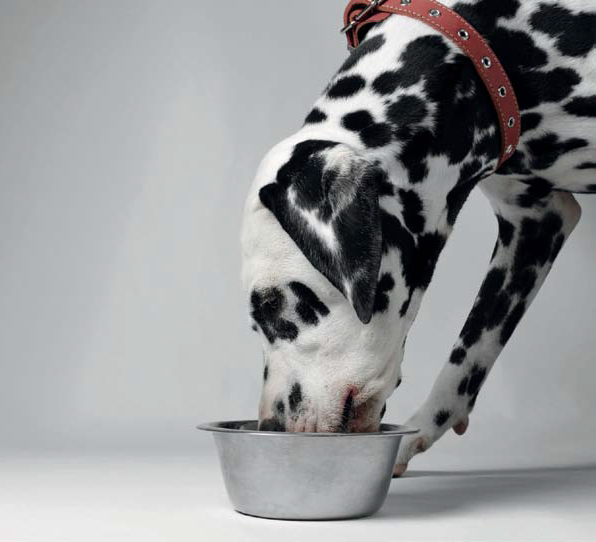
Raw food diets have gained increasing publicity in recent years, but are they safe to feed to your dog? Tim Falk investigates.
Choosing the right thing to feed your dog has never been quite so complicated. In the same way that we can’t turn on the TV or log on to our social media profiles and be bombarded with testimonials and celebrity endorsements for any number of diets we should be feeding ourselves, it seems there are plenty of theories and opinions about what’s best to feed to our dogs.
But what exactly does this raw food diet involve for our pooches? Does it produce any benefits for our canine companions and, most important of all, is it safe? We spoke to two vets — Dr Elise Barry, resident vet at petcircle.com.au, and Dr Eloise Bright from Love That Pet — to get their take on the matter.
Feeding frenzy
“BARF stands for ‘biologically appropriate raw food’, based on the premise that dogs and wolves have a common ancestor,” Dr Bright explains. “This is a controversial way to feed as it is based entirely on raw meat and bones with small amounts of fruits and vegetables, rather than feeding pre-prepared dog food.”
The BARF diet takes a similar approach to how we should be feeding our four-legged family members. “The philosophy behind raw diets is that they follow evolutionary nutrition, which means feeding your dog a diet similar to what their wild ancestors would have eaten thousands of years ago,” Dr Barry says.
“Raw diets have become a popular trend in pet nutrition in recent years. Meals can be both home prepared or commercially available.”
So, if you choose to feed your pooch this sort of diet, what sort of foods will Rover find in his dish come dinner time? “The diet contains raw meats including chicken, lamb, beef, rabbit, pork and kangaroo. Also, offal like kidney, liver, tripe (stomach) and heart,” Dr Barry says.
Vegetables found in the diet include carrots, celery, spinach and broccoli as well as common fruits such as apples, oranges and pears. Herbs are supplemented while ground chicken bone and whole eggs are common additives.

Should you feed it?
“Scientific studies have found that raw diets can commonly have nutritional imbalances. A recent study identified that up to 60 per cent of raw diets had unbalanced essential nutrients such as calcium, phosphorous and Vitamin A. Raw diets are frequently high in fat and although this may allow your pet to have a shiny coat, in the long term it could cause health concerns for your pet.”
Then there’s another problem associated with raw meat: bacteria. Dr Bright says that food production systems can lead to high bacteria loads in meat, particularly mince and raw chicken. “For some pets this can lead to frequent bouts of gastroenteritis with raw feeding. Eggs can also contain salmonella and E.coli if fed raw and the white should also be cooked,” she says.
Of course, this means there are risks involved for people who prepare raw food diets for their dogs. Dr Barry says there is the “potential for bacterial contamination when handling these diets, particularly if you are young, old or immuno-suppressed.”
Yet despite the many risks and drawbacks of the BARF diet, there are some pet owners who insist on feeding it to their dogs. If you’re one of those people, studying up on food safety and nutrition is vital, as is a willingness to get your hands dirty.
“Pet meats can contain high levels of dangerous sulphur preservatives, so watch out for them and only feed human-grade meat,” Dr Bright says.
If you want advice on the best food for your dog, ask your vet — he or she will be able to point you in the right direction.
You need to look after your pooch's health - check out our all-new DOGSLife Directory




Nutrition is not a subject covered in veterinary science unless they are visited by one of the commercial pet food companies so most vets don’t really look into it. As Dr Barry works for a pet food supplier it is hard to believe she would be unbiased. It would be interesting to know who did these “scientific studies” as most of the pet food companies are owned by pharmaceutical companies. Dry dog foods for instance are notoriously low in Vitamin A they are also lacking in essential fatty acids and cooking (needed for commercial dog food) destroys vitamins, enzymes and anti-oxidants. When food is cooked the fats, proteins and carbohydrates the major nutrients are changed. The greater the changes the more indigestible and the body considers the molecules as foreign. Foreign chemicals can result in allergic reactions including auto-immune diseases like arthritis. Why are we seeing problems in dogs never seen before commercial dog food became so popular such as arthritis, cancer, kidney and heart diseases? Most of us have access to the internet, people need to do their research and not rely on what advertising companies are trying to sell you. It is not their job to educate you just to get you to buy their product.